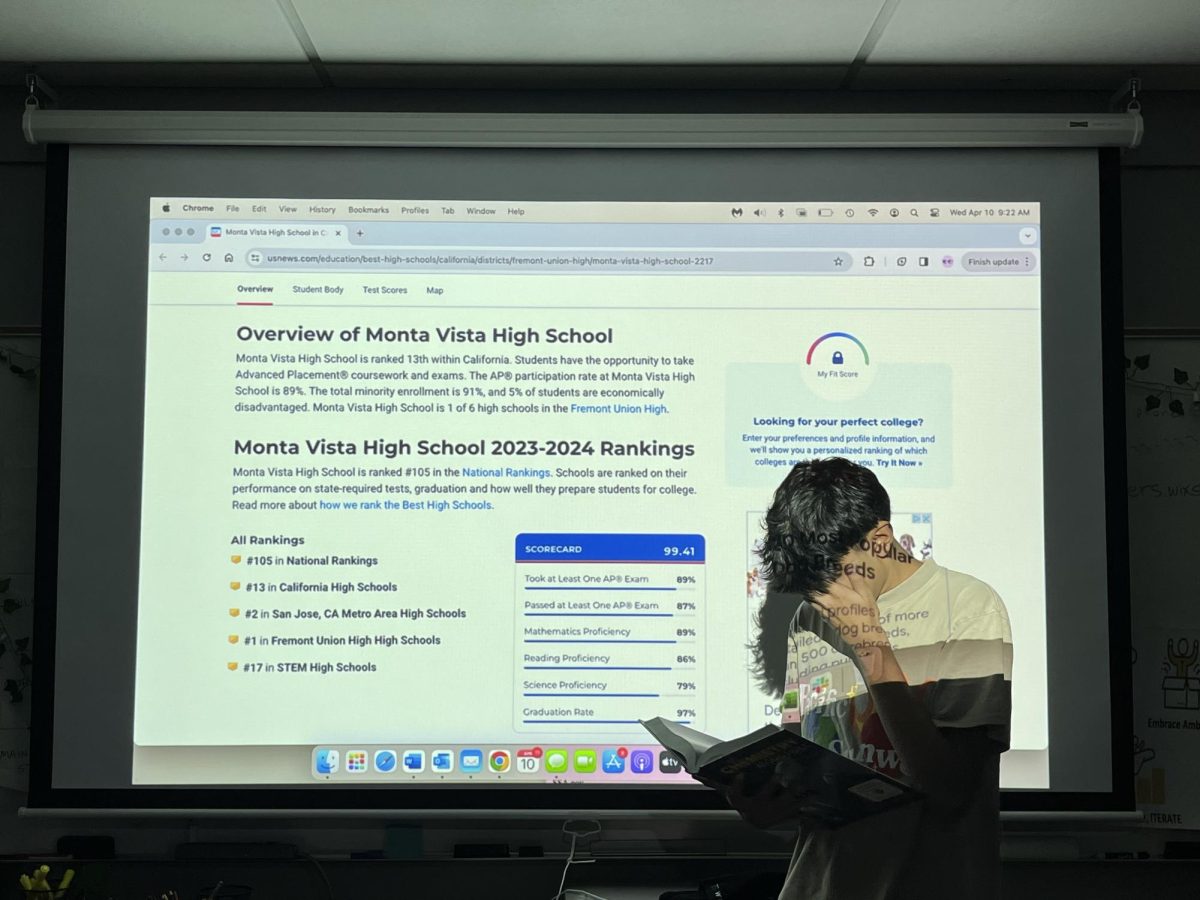Over the summer, MVHS students are known to participate in an activity called binge watching. However, this seemingly innocent pastime has some serious drawbacks that students should consider. Click here to read the original article about binge-watching.
[youtube link=”http://www.youtube.com/watch?v=W4eWvJlBhlI&feature=youtu.be” width=”640″ height=”480″][toggle_content title=”Transcript” class=””]After a school year full of stress and endless homework assignments, summer presents an ideal opportunity to get in some much needed rest and relaxation. This includes staying up late, sleeping in and watching hours upon hours of television and movies. This phenomenon, nicknamed “binge watching,” also chronicled by El Estoque reporter Sophia Tao, refers to students’ tendency to watch intense bouts of TV, often for up to four or five hours a day.
Although students deserve a break from academia during the summer, they should restrict binge watching to one or two hours a day to avoid the many drawbacks of excessive television.
One such drawback, according to a study conducted by an Extension Family and Child Development Specialist at the Alabama Cooperative Extension System, is its detrimental effect on the development of the prefrontal cortex of the brain, which is responsible for higher functions like planning, organizing, self-control, moral judgement and attention. As teenagers with still-developing brains, it is crucial that students acknowledge the potential damage that can ensue due to excessive television time.
In addition, another study, by the Harvard School of Public Health found that watching too much television also increases teens’ likelihood of becoming depressed. Specifically, one study found that women who watched three or more hours of television a day were 13 percent more likely to develop symptoms of depression. Scientists believe that this correlation exists because watching excessive television involves long periods of inactivity, which is a proven contributor to depression. For this reason, students should balance their TV watching with physically and mentally engaging activities such as exercise and socialization.
The potential psychological problems associated with television are proof that students should avoid binge-watching. Although summer is ideal for allowing students to recharge, this can be accomplished through an alternate route: less TV and more activities that are healthy for the mind and body alike.
So the next time you find yourself with an abundance of empty hours ahead of you, consider the negative effects that might result from too much TV. Rather than sitting in front of your computer for hours on end watching “Orphan Black,” or “Suits” consider riding your bike, going for a run or meeting up with friends.[/toggle_content]




















